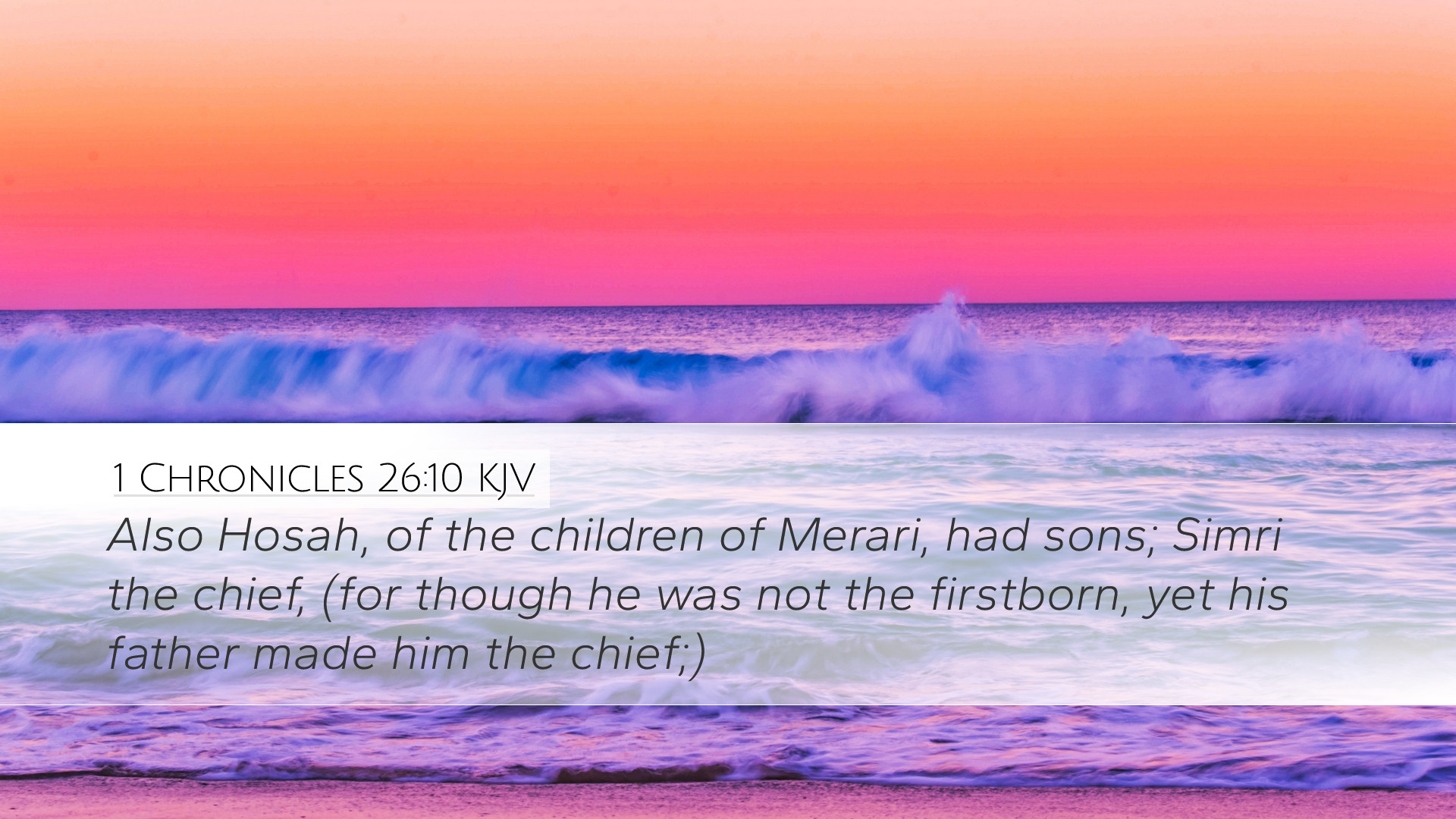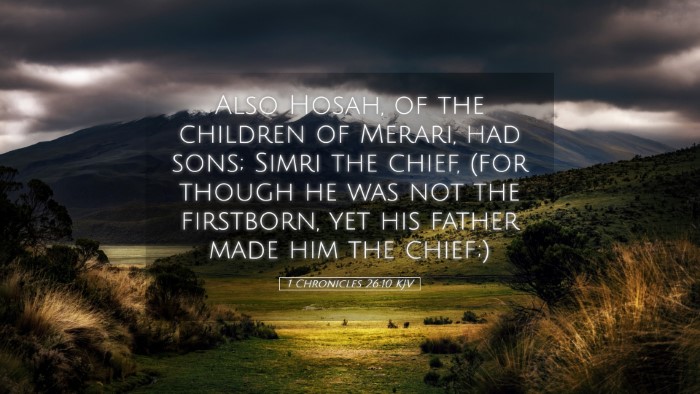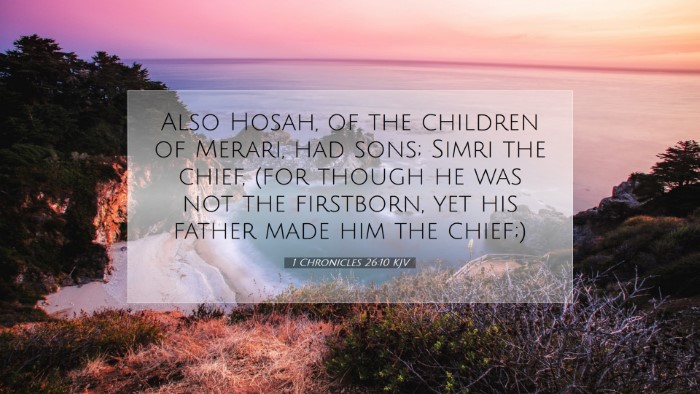Commentary on 1 Chronicles 26:10
Verse: 1 Chronicles 26:10 - "And Obed-edom had sons; Shemaiah the firstborn, Jehozabad the second, Joah the third, and Saccar the fourth, and Nethaneel the fifth."
Overview
The verse introduces us to the lineage of Obed-edom, a key figure positioned as a gatekeeper in the service of the temple. This genealogy is not merely a list of names; it serves to establish the continuity of service and dedication to the sacred duties, reflecting God's faithfulness to those who honor Him.
Significance of Obed-edom
Obed-edom, a Gittite, originally became known for harboring the Ark of the Covenant, leading to blessings for him and his household (2 Samuel 6:11-12). His life embodies the principle that proximity to the holy leads to divine favor. He was a gatekeeper in the House of the Lord, a role signifying protection and access to divine presence.
Genealogy as a Testament of God’s Promises
1. Biblical Genealogies
Genealogies in the Bible often serve multiple purposes; they indicate heritage, reinforce God’s covenant, and validate the fulfillment of divine promises. In this instance, the mention of Obed-edom's sons emphasizes continuity in worship and service to God. It signifies that God's blessing extends to future generations, essentially stating that God's mercy is not limited to a single individual but manifests through their descendants.
2. The Role of Sons
Obed-edom's sons are named specifically, suggesting that each had a role in the kingdom of God. The names themselves may be seen as representing various gifts and capabilities being utilized for the service of God. This mentions not just numerically increasing the number of gatekeepers but emphasizes the shared responsibility and collective service within the family structure. They represent a total of five sons, around which the duties of safeguarding the sacred space were structured.
Commentary Insights
- Matthew Henry:
Henry notes that Obed-edom's children securing their father’s legacy illustrates the continuity of obedience to God as a family duty. This passage shows a typical biblical pattern where one's faithfulness results in subsequent generations being equipped and involved in God's work. Obed-edom’s family embodies the ideal of faithful servitude, showing how family can perpetuate dedication to God’s kingdom.
- Albert Barnes:
Barnes emphasizes the importance of Obed-edom as a gatekeeper. The mention of his sons highlights the role of family in sacred service. Each son could be leaned upon for responsibility in the temple, indicating the communal nature of worship. This verse underscores how the duties tied to the temple were entrusted to individuals who were part of faithful lineages, establishing a tradition of worship and service.
- Adam Clarke:
Clarke provides commentary on the etymology and meaning of the names presented, suggesting deeper spiritual reflections on how each name relates to worship. He argues that understanding the meaning of the names teaches us about the character and responsibilities laid upon these figures. Clarke’s insight serves as a reminder that names in scripture often go beyond identification; they shape the identity and mission of the individuals they represent.
Theological Implications
This verse holds significant theological implications for understanding God's faithfulness across generations. The consistent theme of identification and dedication through genealogy speaks profoundly to the concept of covenant. It emphasizes that in the grand narrative of scripture, God’s faithfulness to His people is a recurring theme. Those whom God blesses are often called to be a blessing to others.
Application for Today
In a contemporary context, the passage serves as a call for families and communities to engage in diligent service to God. It prompts believers to reflect on their legacy and how faith can shape future generations. In a time when family connections can weaken, the narrative challenges communities to rekindle connections through shared faith and purposeful service. The responsibility, akin to Obed-edom's family, is not only personal but communal, encouraging believers to invest in the spiritual growth of those around them.
Conclusion
The message encapsulated in 1 Chronicles 26:10 extends beyond the historical context of Obed-edom's lineage. It challenges a modern audience to embrace their roles within the larger narrative of God's plan, urging us to carry forward the legacy of faithfulness and service. It reflects a God who is aware of and cares for even the smallest details of His people, ultimately calling us to write our own stories of devotion that resonate through the lives of those who follow.


